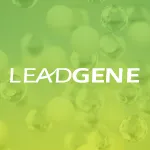A secondary antibody is an antibody that specifically recognizes and binds to the primary antibody, rather than to the antigen. Secondary antibodies are commonly used in laboratory techniques such as Western blotting, ELISA, immunohistochemistry, and lateral-flow assay to detect the presence or expression of antigens of interest in a sample. They are usually conjugated with a detection molecule, such as a fluorescent dye, enzyme, or colloidal gold, that allows for visualization or quantification of the antigen-antibody interaction. The use of secondary antibodies enables the detection of multiple antigens in the same sample, as well as the characterization of the primary antibody specificity and cross-reactivity.
3 results
Donkey Anti-Goat IgG (H+L) Antibody (FAM)
Catalog Number:
Package:500 μL / 1 mL / Customized package
Description:FAM is a fluorescent dye that can be excited by wavelength of 495 nm. Leadgene Donkey Anti-Goat IgG (H+L) Antibody (FAM) is conjugated with high-activity FAM.
Host:Donkey
Clonality:Polyclonal
Conjugation:5(6)-FAM
-
Glycerol-free

Donkey Anti-Goat IgG (H+L) Antibody (TAMRA)
Catalog Number:
Package:500 μL / 1 mL / Customized package
Description:TAMARA is a fluorescent dye for DNA, peptides and proteins. Leadgene Donkey Anti-Goat IgG (H+L) Antibody (TAMRA) is conjugated with high-activity TAMARA
Host:Donkey
Clonality:Polyclonal
Conjugation:5(6)-TAMRA
-
Glycerol-free

Donkey Anti-Goat IgG (H+L) Antibody
Catalog Number:
Package:1 mg / Customized package
Description:Donkey Anti-Goat IgG (H+L) Antibody is purified from donkey, specifically react with goat IgG, heavy and light chain.
Host:Donkey
Clonality:Polyclonal
Conjugation:Unconjugated
-
Glycerol-free
-
Carrier-free

